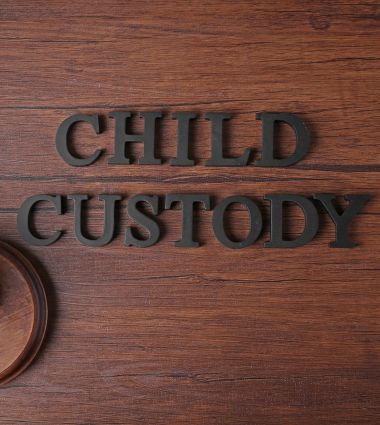How Division of Property Works in an Ontario Divorce
Dividing property during a divorce in Ontario can be one of the trickiest parts of splitting up. It’s not just about deciding who keeps what; there’s a legal process involved, and it’s built around something called "equalization." This means both spouses share the growth in their combined wealth during the marriage. That could include the family home, pensions, savings, or even cars bought while married.
But not everything is up for grabs. Some things, like property owned before marriage or inheritances, might not count. It’s a balancing act that aims to keep things fair, even if it doesn’t feel simple. In this blog, we’ll explain the steps involved, from listing assets to figuring out equalization payments, so you know what to expect and how to protect your rights.
What is the Division of Property in an Ontario Divorce?
Have you ever wondered what happens to everything you and your partner own when you split up? In Ontario, there’s a system called the division of property that sorts it all out. It’s not as simple as splitting a bag of Halloween candy - there are rules, and sometimes it can get a bit messy.
What Counts as Family Property?
Family property includes pretty much everything you and your partner own, even if you bought some of it on your own during the marriage. That could mean your home, car, savings, or even that old hockey stick in the garage. Think of it like you’re both in a canoe, paddling together. Everything in the canoe — your fishing gear, snacks, and even the leaky cooler — represents what you’ve built together.
Now, here’s where things get interesting: splitting property doesn’t always mean cutting everything in half. It’s more like dividing a pizza — some slices might end up bigger than others. A lawyer looks at things like how long you were married, what each person contributed, and what makes sense for both of you moving forward.
What About Stuff You Owned Before the Marriage?
Not everything gets tossed into the "family property" canoe. Things you owned before getting married, like a family cottage or an inheritance, are usually yours to keep. But if those things grew in value during the marriage, the increase might be up for sharing.
Why You Shouldn’t Go It Alone
Dividing property can feel stressul, especially when emotions are already high. It’s not just about who bought what but figuring out what’s fair for both of you in the long run. If you’re dealing with this, getting advice from a family lawyer in Toronto can make a big difference. They’ll help you sort out the details and make sure you’re not paddling upstream on your own.
In Ontario, the rules are there to help couples start fresh. The process might not be easy, but with the right support, it’s manageable. Think of it as building a new canoe — this time, for your solo journey.

How Does the Division of Property Work for Couples Getting Divorced?
Divorce can feel overwhelming, especially when it comes to splitting what you and your partner own. In Ontario, the division of property is all about making sure things are divided fairly. Let’s break it down so it’s easy to understand, whether we’re talking about your home, savings, or even that high-tech coffee maker you both adore.
In Ontario, family property includes most things you and your partner owned together during the marriage. It’s not just about the big stuff like your house or car —it’s also smaller items like furniture, joint bank accounts, or investments. Even pensions might be part of the mix.
Here’s how it works: the value of your property is calculated at two major points - when you got married and when you separated. The difference in value gets divided between you. It’s not always a clean 50/50 split, though. For instance, gifts or inheritances are usually excluded, but if they gained value during the marriage, the increase might be shared.
Think of it like a savings jar you’ve both been adding to. When it’s time to divide it, some coins are yours, some are theirs, and a few might go back to whoever contributed more.
What About Uneven Contributions?
Not every marriage has equal financial contributions, and the law tries to factor that in. If one partner spent more on the family, like paying off the mortgage or covering big expenses, it might shift how property gets divided.
For example, say one person stayed home to raise kids while the other worked full-time. Even though their financial contributions were different, both roles added value to the family. The property division process aims to reflect that.
Getting Help from a Family Lawyer
Dividing property during a divorce can get complicated - especially with things like investments, debts, or family businesses. That’s where a Toronto family lawyer can be of big help as they’ll help you figure out what’s fair and make sure you’re not missing out on anything.
Factors That Affect the Division of Property in an Ontario Divorce
Different factors can influence the process of property division in case of a divorce and who gets what, making the process more complicated than it looks.
Gifts and Inheritances
For Instance your grandmother leaves you her cherished vintage Maple Leafs jersey. In most cases, that’s yours to keep. Gifts and inheritances from someone other than your spouse usually stay out of the shared property pool. They’re like having a “no-touch” zone for special items.
That said, there’s a catch. If the value of an inheritance grows while you’re married — for instance, if you inherited a cottage and your family made upgrades — the increase in value might be split. It’s not as simple as calling dibs, so it’s good to get legal advice on this one.
Does the Length of Marriage Matters?
Yes, it does. The longer you’ve been married, the more likely things will be divided evenly. This is like playing a long game — you’ve both invested time and effort, so it feels fair to share the winnings.
But for shorter marriages, the rules might work differently as you may get to keep more of what you brought into the relationship, especially if it wasn’t shared during the marriage.
Tax Talk
Dividing property isn’t just about figuring out who gets what — it’s also about who ends up paying for it. Transferring assets between spouses can trigger taxes, and that’s something you don’t want to overlook.
Imagine trying to hand over a steaming cup of coffee. If you’re not careful, someone’s going to spill it and get burned. A family lawyer can help you avoid unnecessary tax problems while sorting out the division.

Protecting Your Assets During a Divorce - Role of a Family Lawyer
Divorce can be tough, no doubt about it. If you’re in Toronto or anywhere in Ontario, figuring out how to divide property fairly is one of the biggest hurdles. A family lawyer can help make sense of it all, so you don’t lose out on what’s rightfully yours.
Why You Need a Family Lawyer
Think of a family lawyer as your guide through the maze of divorce. Their job isn’t just paperwork — they’re there to protect what’s yours and keep things fair.
For starters, they’ll help you sort out what assets are in play. This includes obvious stuff like homes and bank accounts but also things you might forget, like pensions or that investment account you barely check. A good lawyer will explain what counts as shared property and what doesn’t, like gifts or inheritances that might be off-limits.
Gathering and Valuing Assets
Your lawyer is like a detective for your finances. They’ll get into bank statements, property records, and even debts to get the full picture of what you and your ex own. If you’ve got something tricky, like a small business or a complicated investment, they might bring in experts to figure out what it’s worth.
Fighting Your Corner
If things get messy (they often do), and if you and your ex can’t agree on who gets what, your lawyer will step in. They’ll negotiate to reach a fair deal, and if that doesn’t work, they’re ready to represent you in court.
It’s not just about fighting; it’s about making sure you don’t walk away with less than you deserve. Whether it’s protecting a home you’ve invested in for years or securing your share of retirement savings, a skilled family lawyer knows how to stand up for you.
Common Questions About Dividing Property in an Ontario Divorce
Who gets to keep the family home?
When it comes to division of property in case of a divorce, the family home is often a hot topic. In Ontario, the general rule is that both spouses have an equal right to stay in the home until it's sold or the court decides otherwise. But don't worry, you won't be stuck living with your ex forever! Usually, one person buys out the other's share, or the house gets sold and the money is split.
What about my pension? Is that up for grabs too?
Yep, pensions are part of the property division pie. In Ontario, the value of your pension that you earned during the marriage is usually split 50/50. A family lawyer in Ontario can help you figure out the details of pension division.
Do I have to split my inheritance with my ex?
Good news! Inheritances are usually off the table when it comes to division of property in couples in a divorce. If you kept that inheritance separate from your family finances, it's all yours. But if you used it to buy a family car or renovate your house, things might get complicated.
What if we can't agree on how to divide our stuff?
Don't sweat it! If you and your ex are butting heads over who gets the fancy coffee maker, there are options. You could try mediation, where a neutral person helps you hash things out. Or, if that doesn't work, a judge can make the call. Just remember, fighting over every little thing can get expensive and drag out the process.
How long do we have to figure all this out?
In Ontario, you've got six years from the day you separate to sort out your property division. But don't wait until the last minute! The sooner you get it done, the sooner you can move on with your life - memories fade and receipts get lost, so it's best to tackle it while everything's fresh in your mind.
Real Estate
Family Law
Wills & Estates
Immigration
Join Our Mailing List.
Sign up with your email to receive our newsletter and stay informed about the latest legal developments and special offers.



















